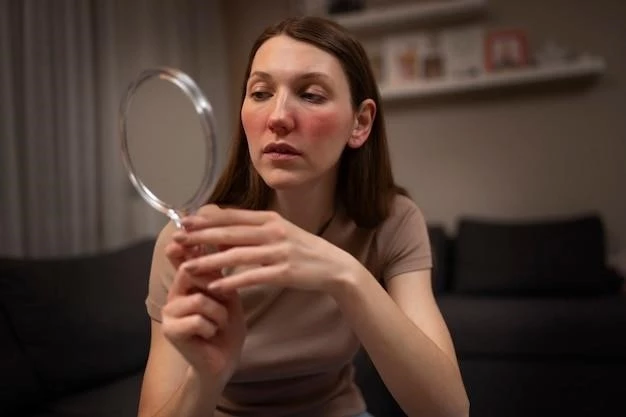Cutis verticis gyrata is a rare condition characterized by scalp folds.
The causes can be primary or secondary, linked to underlying conditions.
Common symptoms include scalp thickening and a grooved or wrinkled appearance.
Causes of Cutis Verticis Gyrata
Primary causes are genetic mutations affecting skin elasticity.
Secondary causes may include tumors, head trauma, or inflammatory conditions.
Hormonal imbalances or certain medications can also contribute to its development.
Symptoms of Cutis Verticis Gyrata
Visible scalp folds, resembling the appearance of a brain’s surface.
Thickened, ridged, or furrowed scalp skin can be present.
In some cases, hair loss or scalp itchiness may also be experienced.
Treatment Options for Cutis Verticis Gyrata
Medical treatments focus on symptom management and underlying causes.
Surgical options may include scalp reduction or skin excision procedures.
Consult a dermatologist or surgeon for personalized treatment plans.
Medical Treatments
Medical treatments for cutis verticis gyrata aim to manage symptoms.
Topical or oral medications can help reduce scalp thickening or itching.
Corticosteroids may be prescribed to address underlying inflammation.
Consult a healthcare professional for guidance on suitable medical interventions.
Surgical Treatments
Surgical procedures for cutis verticis gyrata involve scalp tissue removal.
Scalp reduction or skin excision surgeries are options to address the condition.
Discuss with a surgeon to explore the most suitable surgical interventions.
Living with Cutis Verticis Gyrata⁚ Tips and Advice
Adopt scalp care routines to maintain skin health and manage symptoms.
Use mild shampoos, avoid tight hairstyles, and protect your scalp from sun exposure.
Seek medical advice for personalized strategies to enhance your quality of life.
Lifestyle Adjustments
Embrace stress-management techniques to promote overall well-being.
Healthy diet and regular exercise can support skin health and immunity.
Stay hydrated and prioritize sleep for optimal physical and emotional health.
Consult healthcare providers for guidance on lifestyle modifications.
Emotional Support
Seek counseling or therapy to cope with emotional challenges.
Connect with loved ones and support groups for understanding.
Practice self-care activities like meditation or hobbies to reduce stress.
Prioritize your mental well-being in managing the psychological impact.
Cutis Verticis Gyrata Research and Developments
Stay updated on the latest advancements in understanding and treating the condition.
Current Research Studies
Researchers are investigating genetic factors and potential new treatments.
Clinical trials aim to improve outcomes and quality of life for affected individuals.
Stay informed about participation opportunities to contribute to advancing knowledge.
Rare Skin Conditions⁚ Cutis Verticis Gyrata Explained
Learn about this uncommon skin condition that affects the scalp.
Overview of Rare Skin Conditions
Rare skin conditions like cutis verticis gyrata can impact quality of life.
Consult dermatologists for accurate diagnosis and tailored treatment plans.
Stay informed about advancements in managing these uncommon skin conditions.
Coping with the Psychological Impact of Cutis Verticis Gyrata
Address emotional challenges and seek psychological support for coping.
Emotional Challenges
Dealing with stigma, anxiety, and self-esteem issues can be common.
Psychological impact may lead to social difficulties and emotional distress.
Therapies and support systems are crucial for managing these challenges effectively.
Psychological Support
Psychotherapy and counseling can aid in coping with the emotional impact.
Support groups offer a safe space to share experiences and receive empathy.
Building a strong support network is essential for mental well-being in managing the condition.

Support Groups for Individuals with Cutis Verticis Gyrata
Connect with online communities and in-person groups for shared experiences.
Online Support Communities
Join virtual platforms to connect with individuals facing similar challenges.
Share experiences, seek advice, and find a sense of belonging and understanding.
Online support groups offer valuable emotional support and a sense of community.
In-person Support Groups
Attend local meetings to connect face-to-face with individuals dealing with similar challenges.
Share insights, receive encouragement, and build supportive relationships in a safe environment.
In-person support groups offer valuable camaraderie and understanding for those impacted by the condition.
Surgical Procedures for Managing Cutis Verticis Gyrata
Explore surgical interventions to address the physical aspects of the condition.
Surgical Interventions
Scalp reduction and skin excision are common surgical options for treatment.
Consult with a qualified surgeon to determine the most appropriate procedure.
Surgical interventions aim to improve the appearance and manage symptoms effectively.
